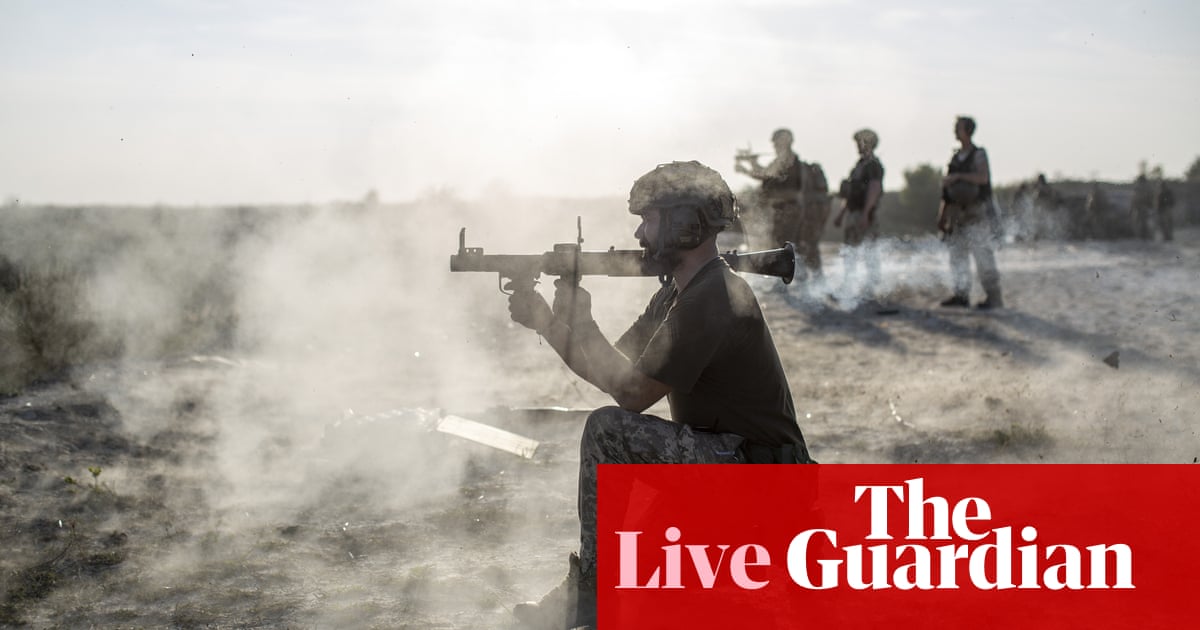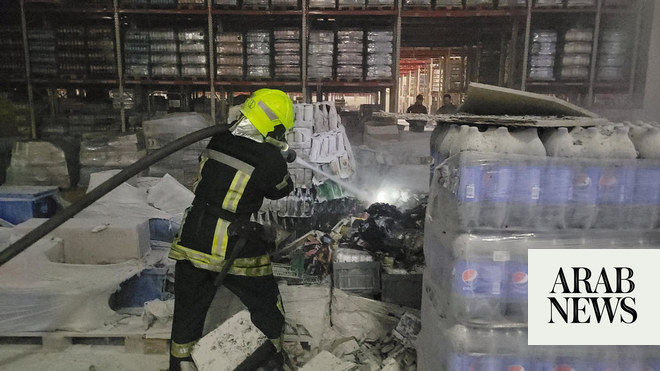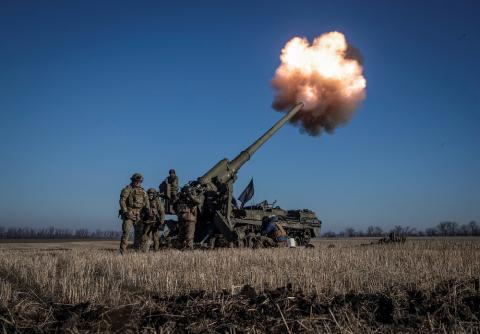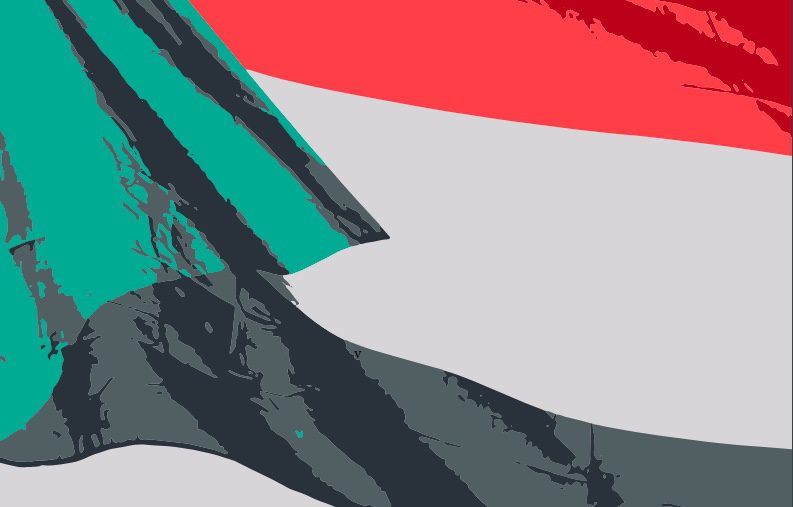
Russian-backed head of Donetsk imposes five-hour curfew
The Russian-installed head of the Donetsk oblast has imposed a curfew banning the presence of civilians on streets and public places from 11pm until 4am on Mondays through Fridays, Reuters is reporting.
Denis Pushilin published a decree on Sunday that forbids assemblies, rallies and demonstrations, in addition to other mass events, in the Russian-controlled parts of the Donetsk oblast – unless they were permitted by the local operational headquarters for military threat response.
This comes after Pushilin signed a decree last week introducing “military censorship of postal mail and messages transmitted via telecommunications systems as well as control of telephone conversations”.
Pushilin’s order also established checkpoints and security posts at borders with the Luhansk and Zaporizhzhia oblasts.
We’re now closing the Russia-Ukraine war blog for today, thanks for following along with the Guardian’s live coverage. We’ll be back with more tomorrow.
For a summary of today"s events, see this post for the major news headlines.
That’s all from me, Jem Bartholomew in London. See you next time.
After Ukraine began using a new naval route to bypass Russia’s de facto blockade of its Black Sea ports – with two ships in the past week successfully sailing the new route – here’s a rundown on what the Black Sea grain deal was and why it was so important before it collapsed when Russia pulled out in July.
My colleague Patrick Wintour wrote about the deal in late July:
What was the Black Sea grain deal? The Black Sea grain initiative was negotiated in July 2022 between Turkey, the UN and Russia as a way of ensuring that Ukraine, one of the breadbaskets of the world, could ensure that its grain could leave its southern ports via the Bosphorus. The grain could not be exported in the quantities required using the alternative methods of road or rail through Poland or by canal and river through Romania.
What did the grain deal promise? The initiative, one of the few diplomatic achievements since the war started, allowed for commercial food and fertiliser (including ammonia) exports from three key Ukrainian ports in the Black Sea – Odesa, Chornomorsk, and Pivdennyi (formerly known as Yuzhny). Ukrainian vessels guided cargo ships into international waters of the Black Sea, avoiding mined areas. The vessels then proceeded towards Istanbul along an agreed maritime humanitarian corridor. Ships heading to and from the Ukrainian ports were inspected by teams composed of Russian, Turkish, Ukrainian and UN inspectors.
There were explosions in two Russian military towns by “unknown saboteurs” targeting military equipment early on Sunday, Ukrainian media site Ukrinform has reported, citing a Telegram channel from the Main Directorate of Intelligence of the Ministry of Defense of Ukraine.
Here is what Ukrinform has reported about the incidents:
On the night of 24 September, unidentified saboteurs expanded the geography of ‘bavovna’ [explosions] in the aggressor country, distinguishing themselves by successful actions in the Moscow and Kaluga regions.
In particular, a fuel truck was destroyed at the military town of the 2nd Guards Motor Rifle Division of the 1st Tank Army (military unit 23626, Kalininets, Naro-Fominsk district).
Four vehicles with trailers were destroyed at the military town of the 60th arms arsenal (military unit 42702, Kaluga).
Summary of the day so far
The mayor of Russia’s Kursk had to cancel the Kursk City Day fireworks celebration after a Ukrainian drone struck an administrative building, damaging the roof. There have been more reports of explosions.
Ukraine has now begun using a new route that allows the country to bypass Russia’s de facto blockade of Ukraine’s Black Sea ports. This past week, two ships have successfully used the new route, with three more cargo vessels entering Ukrainian waters in recent days.
Volodymyr Zelenskiy handed awards to two Polish volunteers during a stopover in Poland on Saturday but did not meet any officials amid strained relations between Kyiv and Warsaw over grain imports.
An imprisoned Russian opposition figure has been transferred to a maximum security prison in Siberia, where he was placed in a tiny “punishment cell”, his lawyer Vadim Prokhorov said.
Russia’s suspension of petrol exports will probably limit already tight supplies in the global market and have the biggest impact on countries that depend on Russian fuel supplies, the UK Ministry of Defence has said. In its latest intelligence update, the ministry said Russians had probably faced localised petrol and diesel shortages in recent weeks.
Pope Francis has said the weapons industry is a key driver of the “martyrdom” of Ukraine’s people in the war with Russia, saying that even the withholding of weapons now is going to continue their misery. The Associated Press reports that the pontiff appeared to refer to Poland’s recent announcement that it was no longer sending arms to Ukraine when reporters asked him about the war as he was returning to Rome from a visit to Marseille, France.
The Russian-installed head of the Donetsk oblast has imposed a curfew banning the presence of civilians on streets and in public places from 11pm until 4am from Mondays to Fridays, Reuters reported. Denis Pushilin published a decree on Sunday that forbade assemblies, rallies and demonstrations, in addition to other mass events, in the Russian-controlled parts of the Donetsk oblast – unless they were permitted by the local operational headquarters for military threat response.
Amid reports that the US president, Joe Biden, has decided to supply Ukraine with long-range army tactical missile systems – reports the White House has yet to confirm – the former US commanding general Ben Hodges called for the US to give Ukraine weapons with the capability to strike at Russian targets in Crimea.
The European commission has sent another €1.5bn in macro-financial assistance to Ukraine. The commission has pledged a total of €18bn to Ukraine – the country has already received €12bn. The funds go towards keeping essential public services running, such as hospitals, schools and housing for relocated citizens, as well as paying wages and pensions.
Three people were killed and several more injured in Russian attacks on the Kherson oblast, with Russian forces targeting “the residential quarters of the populated areas of the region” as well as the banking institution in the Berislav district, regional governor Oleksandr Prokudin said on the messaging app Telegram. In Berislav, the aerial attacks also destroyed private homes and injured a police officer, as well as a 48-year-old man and a 60-year-old woman.
Imprisoned Russian opposition activist transferred to Siberia
An imprisoned Russian opposition figure has been transferred to a maximum security prison in Siberia, the Associated Press is reporting.
Vladimir Kara-Murza Jr, 42, arrived last week at IK-6, a maximum security penal colony in the Siberian city Omsk, where he was placed in a tiny “punishment cell”, his lawyer Vadim Prokhorov said today.
Kara-Murza, a journalist and opposition activist, was convicted earlier this year of treason for publicly denouncing Russia’s war in Ukraine and sentenced to 25 years in prison.
Russian prison transfers, usually done by train, are notorious for taking a long time, information on the prisoner’s whereabouts is limited. Prokhorov said the transfer from a detention center in Moscow, where Kara-Murza was being held pending trial and appeals, took less than three weeks.
The charges against Kara-Murza stemmed from a speech he gave to the Arizona House of Representatives in which he denounced Russia’s invasion of Ukraine.
Kara-Murza, who survived poisonings in 2015 and 2017 that he blamed on the Kremlin, rejected the charges against him and called them punishment for standing up to Vladimir Putin.
A “punishment cell” is a tiny concrete cell where convicts are held in isolation for violating prison regulations.
Here are some of the latest images from Ukraine coming in over news agency wires:
Authorities have completed their search after a Russian rocket attack two days ago on Kremenchuk along the Dnipro River.
The injury count has increased to 55, six of whom are children, the city’s mayor Vitalii Maletskyi said on Telegram. Of the injured, 19 are receiving inpatient treatment at city hospitals, including one child.
One person was killed in the attack on 22 September.
The Ukrainian air force is warning several oblasts of incoming missiles, and repelling a number of them.
On Telegram, the air force announced that its personnel had taken care of aerial threats in the Dnipro, Donetsk, Zaporizhzhia, Odesa, Kirovohrad and Mykolaiv oblasts this morning.
Twice this morning alone, the air force repelled threats in the Kherson oblast. A few minutes ago, they repeated warnings of missile danger in the region.
The air force also warned that an air alert in the Sumy oblast is related to the activity of Russian army aviation along the border.
The mayor of the Russian city Kursk has canceled the fireworks celebrating Kursk City Day after at least one Ukrainian drone strike that damaged an administrative building.
Kursk’s mayor, Igor Kutsak, said on Telegram: “In connection with recent events, I decided to cancel the fireworks display in honor of City Day. I think this will be reasonable from the point of view of peace and safety of residents.”
There have been more reports of explosions in Kursk, but it’s currently unclear if they were caused by Ukrainian forces.
One person was injured in a Ukrainian drone strike on Russia’s Belgorod oblast, the regional governor Vyacheslav Gladkov said on Telegram.
A drone dropped an explosive device on a passing truck in Novoe in the Volokonovsky district, Gladkov said. The truck driver took himself to a hospital, where he was treated for a mild concussion and shrapnel wounds.
Civilians were injured after the activation of Russian air defences in Tokmak in the Zaporizhzhia oblast, Melitopol mayor Ivan Fedorov said on Telegram.
Ukraine utilising Black Sea shipping routes amid threats
Since the Kremlin withdrew in July from a grain deal brokered by the UN and Turkey that allowed for the safe passage of agricultural exports from Ukraine, Russian forces have been targeting the port of Odesa and forcing Ukraine to stop using its usual Black Sea routes.
But Ukraine has now begun using a new route that allows the country to bypass Russia’s de facto blockade of Ukraine’s Black Sea ports, the New York Times is reporting.
This past week, two ships have successfully used the new route, with three more cargo vessels entering Ukrainian waters in recent days.











